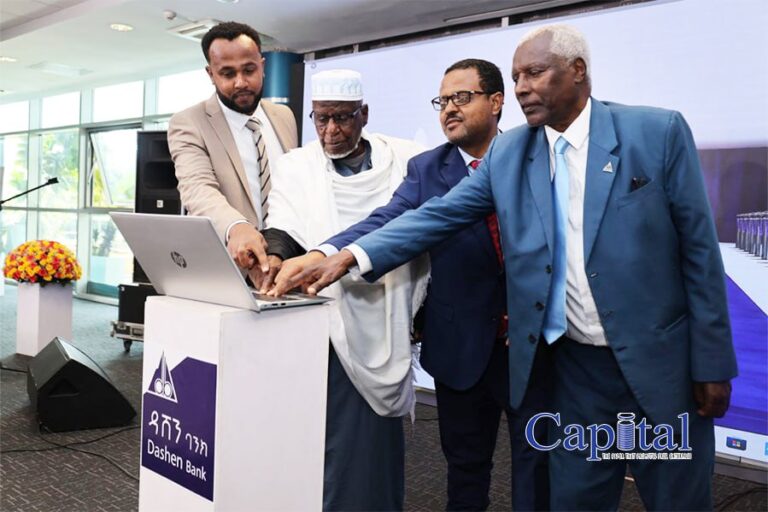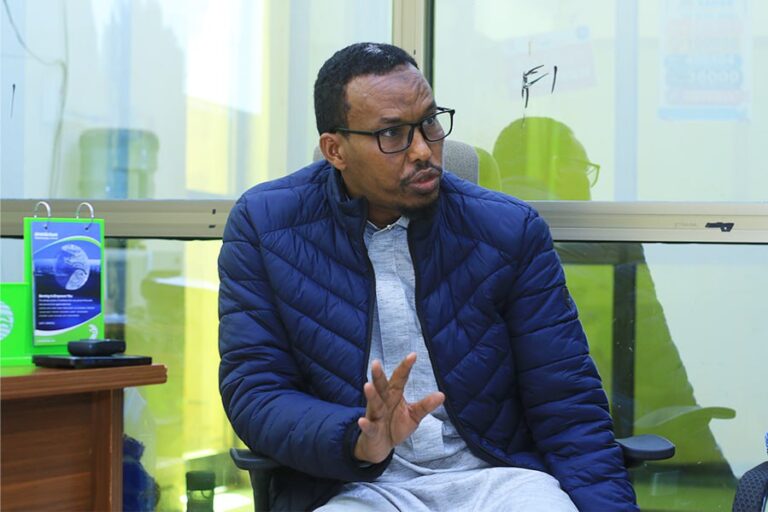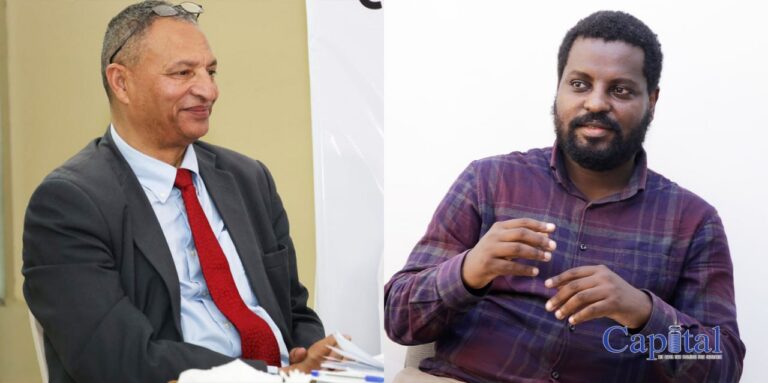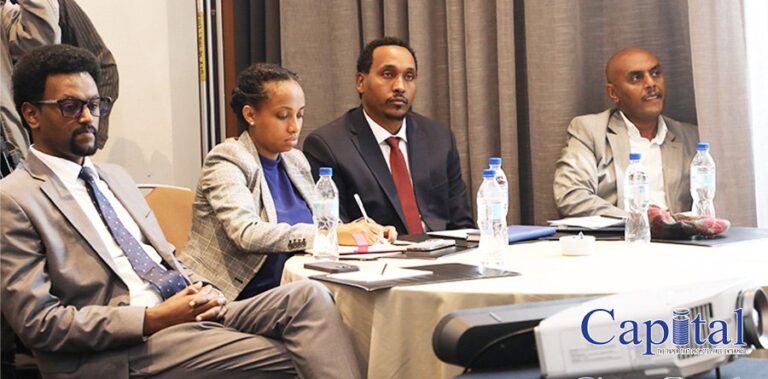Pundits explain that a project to build an Export-Import (EXIM) Bank with an alliance of big financial institutions should be initiated in order to decrease the expenditure that flows for overseas partners. It is thought that mergers hold the key to bolstering Ethiopia’s banking sector.
Reportedly, one of the main factors increasing local banks’ charges to their clients for conducting business abroad is the service charge that correspondent banks collect.
Financial sector analysts claim that the payments made to foreign banks for their services represent an extra burden on a nation that is already severely short of hard currency.
They propose that, in addition to other options and temporary fixes, the establishment of the EXIM Bank is crucial to controlling the issue.
Financial industry expert and consultant Eshetu Fanataye presented the proposal, explaining that since the payment is made all at once, small banks, whose letter of credit (LC) and transaction volume is very small, will greatly benefit if a local EXIM Bank is established.
Currently, small banks are paid four to six percent for partners abroad. He added that certain large banks, such as Commercial Bank of Ethiopia, Awash, or Dashen, would make a special effort to be strong in order to provide correspondent banking services for small banks to favor local businesses and receive comparatively the cheapest service.
The local banks would pay a lower fee for the EXIM Bank that is formed locally.
Eshetu stated, “I prefer the formation of the EXIM Bank. Big banks shall provide settlement and clearing services for small banks; it will benefit the country.”
Even though they differ for each bank, service fees and cross-border payments, including LC fees, are what “I described as draining the nation.”
Charges from correspondent banks may vary depending on the size of the bank. Due to the magnitude of the transaction, the payment for small, medium, and big banks with comparable correspondent banks is not the same.
Experts said local banks, particularly medium-sized and smaller banks, that have paid up to 6% of the service charge for foreign transactions would gain from the EXIM Bank.
Customers are currently protesting that banks are deducting up to 10 percent of their foreign transaction fees as commission, which they claim might encourage the growth of a parallel market that charges low fees.
Nonetheless, analysts claimed that a number of reasons contribute to an increase in bank service charges.
Experts contend that correspondent banks, who seek exorbitant rates that are unheard of in other nations, are the main cause of the expenditures.
They said that one of the main reasons why correspondent banks demand large commissions from Ethiopian banks is the lack of hard currency and the erosion of Ethiopia’s rating from rating agencies.
Eshetu suggested that, in order to overcome the present situation, the nation make use of the International Finance Corporation (IFC) and Multilateral Investment Guarantee Agency (MIGA) guarantees of the World Bank. “The establishment of an EXIM bank is imperative in the long run,” he continued.
According to the most recent World Bank statement on Ethiopia, “IDA expects to provide approximately USD 6 billion in new commitments and support economic reforms through fast-disbursing budget support” during the next three fiscal years.
The statement states that IFC, the Bank’s commercial arm, intends to provide about USD 2.1 billion, while MIGA wants to expand its participation, especially through the World Bank Group Guarantee Platform.
According to Tilahun Girma, a former head of correspondent bank relationships who is presently advising the banking and financial sectors, certain banks, most notably Commercial Bank of Ethiopia (CBE), a state-owned policy bank, offer agent services.
According to him, CBE used to work more on exporting LC for other banks when it came to LC distribution. Foreign banks that are unfamiliar with Ethiopian small banks or lack relationship management applications (RMAs) linked through CBE.
“When banks lack an account, CBE also acts as a third bank’s loan company,” he said.
“CBE has a duty to support the local financial industry, even though it is sometimes framed as a competition issue,” Tilahun told Capital.
“The scheme that functions as an international financial transaction is offered locally, but it requires zeal on the consideration of aiding the nation.” He emphasized that such collaboration should be required by law.
He fervently advocated for small bank mergers in order to pool disparate resources and build tiny but powerful financial firms that can compete in the market and conduct business with international partners.
He said, “Given the strength of the Ethiopian financial industry, I hope mergers and acquisitions will occur soon.”
He said that because EXIM Bank is a specialized financial institution, it might help the export sector in a strategic way.
Nonetheless, he voiced his opinion that the establishment of import-export banks does not alleviate the burden that correspondent banking activity places on smaller banks.
In addition to concentrating on their largest clients, banks themselves ought to have made a significant effort to increase their ability to service all business categories.
Tilahun also recommended the local banks to retain their reputation, which directly reflects on the nation.
“Sometimes banks issue LC even though they don’t have adequate resources,” he said, recalling the latest sovereign bond default. “This affects the image of the country in the international financial industry relationship.”
He went on, “If one bank fails in settlement, it hurts the entire financial sector of the nation.”
Regarding the commission and other fees that the present local banks are collecting, Tilahun holds a different opinion.
“I reject the assertion that foreign banks are receiving enormous commissions; instead, the majority of them are paid to local banks directly,” he continued.
He said that the cost charged by local banks cannot be compared to the reduction made by correspondent banks.
“Account maintenance fees are calculable for new banks, but they are not an issue for large, established banks,” he continued.
According to him, since the country’s rating was lowered, foreign partner banks are requesting confirmation for LC advice given in international commerce. There are two methods to verify it: one, local banks need to block their reserve at foreign banks; second, there should be a mechanism whereby local banks can pay an additional fee to use correspondent banks.
He emphasized that not all transactions, countries, or payment methods may require confirmed LC. The payment methods include LC, cash against document (CAD), and advance payments; the latter two don’t require confirmation, therefore it’s untrue if banks say that fees increase for all payment methods.
He asserted that CAD, which does not require confirmation, is used for the majority of transactions in Ethiopia. He acknowledged that, in comparison to non-confirmed LC, the confirmed letter of credit technique is more costly.
He cites a number of reasons, including “poor reputation, downgraded grading, and some new trading partners not wanting to take risks, so they want confirmed LC,” although most often it may not apply to reputable institutions.
He emphasized that if banks don’t think about cutting their fees and commissions, potential funds may be diverted to the parallel market, where very little is charged.
He said that addressing the foreign exchange that flows to the black market is one of the main ideas of the most recent economic reform. According to experts, the National Bank of Ethiopia’s (NBE) 2.5 percent commission charge on currency operations should be eliminated in order to lower the fee that banks charge their clients.
According to the NBE, the regulatory body, the most recent circular will continue to be the case, and banks will continue to collect it in accordance with standard procedures and guidelines.
A financial organization that offers services to another, generally in a different nation, is known as a correspondent bank.
In order to facilitate wire transfers, carry out commercial transactions, receive deposits, and obtain documentation on behalf of another bank, it serves as an intermediary or agent. Capital failed in its attempt to obtain more feedback from the major banks.









